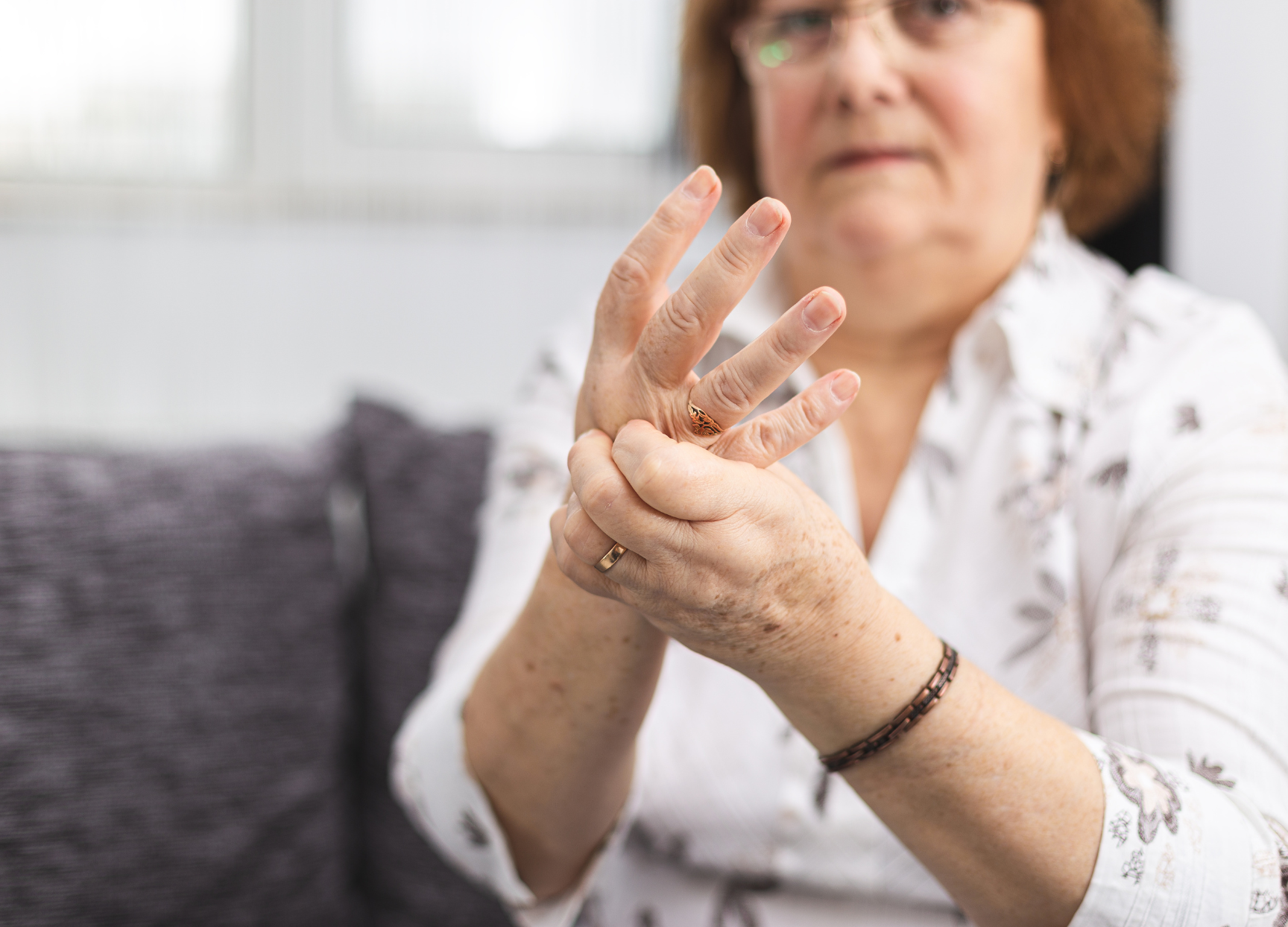Dr Naveen Bhadauria
Consultant Rheumatologist
Specialist expertise: Orthopaedics, Rheumatology, Back and Neck Pain, Rheumatoid Arthritis, Arthritis, Osteoporosis, Lupus, Gout.
Rheumatoid arthritis is an autoimmune condition that causes pain, swelling and stiffness in joints.

Rheumatoid arthritis is a type of arthritis that commonly affects the joints in the hands, feet and wrists. It can also cause problems in tissues in other areas of the body, or general symptoms such as tiredness and weight loss.
With rheumatoid arthritis, there may be periods where symptoms are worse, known as flare-ups or flares. Flare-ups can be difficult to predict, but effective treatment can help decrease the frequency of flares and also reduce long-term damage to the joints.
Symptoms of rheumatoid arthritis vary in severity and may come and go. Small joints such as those in wrists, hands and feet are typically affected first. Symptoms that occur during a flare-up can last for days or even months.
Common symptoms of rheumatoid arthritis include:
Pain, tenderness, swelling or stiffness in one or more of your joints that lasts for six weeks or longer
Stiffness upon waking that lasts for 30 minutes or longer
Symptoms in the same joints on both sides of the body
Fatigue, a fever and loss of appetite
Approximately 40% of people with rheumatoid arthritis also experience symptoms in other areas of their body, such as the skin, eyes, lungs, heart and kidneys.
Rheumatoid arthritis is an autoimmune disease. This means that the cells that usually fight infections start to mistakenly attack the cells that line your joints. Over time, the cartilage surrounding your joints and the nearby bones are worn down and damaged, causing pains, swelling and stiffness.
It’s not known exactly what triggers the immune system to behave in this way, but risk factors for developing rheumatoid arthritis include:
Sex – you are more likely to develop rheumatoid arthritis if you’re female
Family history – rheumatoid arthritis may be hereditary
Smoking – if you currently smoke or have smoked in the past you’re likely to be at an increased risk of developing the condition
Obesity – people carrying excess weight seem to be at higher risk
A diagnosis of rheumatoid arthritis can be made based on an assessment of your symptoms, a physical examination and the results of blood and imaging tests.
The condition can be difficult to diagnose as there is no definitive test for it, and there are a number of other conditions that can cause the same symptoms.
Blood tests, MRI scans and X-rays can help your specialist differentiate between the various types of arthritis so that they can make an accurate diagnosis and provide you with the most effective treatment.
While there is currently no cure for rheumatoid arthritis, early diagnosis and appropriate treatment can help reduce the frequency and impact of flare-ups.
Treatment options for rheumatoid arthritis include:
Regular exercise – staying active can help maintain you a healthy weight or lose weight to help reduce the impact of excess weight on your joints
Medications – topical or oral pain medicines and oral anti-inflammatory medications can be taken to help reduce aching, inflammation and swelling. Corticosteroids and other prescription medications may also be given to help with pain and inflammation
Hot and cold compresses – heat pads or warm baths can help soothe stiff joints while cold treatments can help reduce swelling and pain
Surgery – surgery may be recommended in cases where joints are severely damaged or if pain cannot be controlled effectively with medication
We are able to offer Rheumatoid arthritis appointments to referred paediatric patients aged 12-18. For full information on our paediatrics service, please visit our main Paediatrics page.
Currently selected day
Available consultations